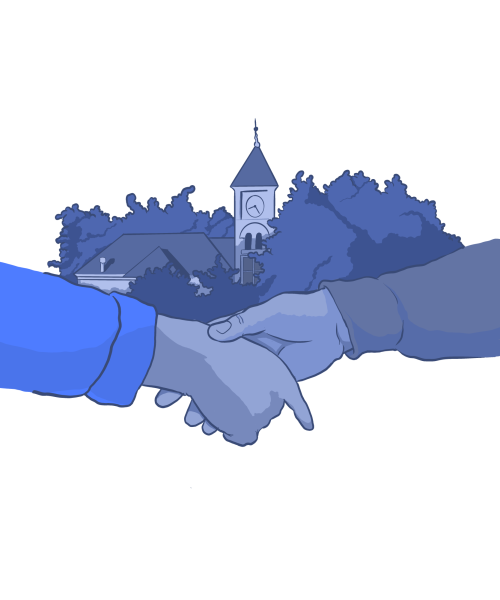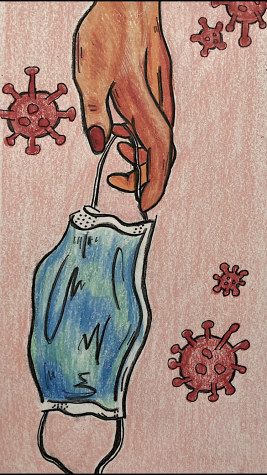Facing unresolved challenges the pandemic has left to us
December 2, 2021
We are approaching the end of this semester. As I look back at the past several months, I am amazed by how different they have been compared to the first in-person semester I had last spring. This semester finally felt like college, with almost everything running in person. I truly appreciate the almost normal college life I had this semester.
But I also feel that I have become too distant from the pandemic itself. Not only have I distanced myself from my home country but from the world outside campus, so I am writing this to not let go of what the pandemic is revealing to us.
The pandemic continues to leave disproportionate effects, especially by race and socioeconomic status, as well as exacerbating xenophobia and racism. The pandemic revealed and widened cracks that were already there, making them undeniable even to those not affected by these issues first-hand. The realizations we’ve come to could be forgotten as easily as we’ve accepted the new normal of college life.
Meanwhile in my home country, too, the pandemic is forcing many of us to see issues that must be addressed. Like the states, the virus is leaving scars disproportionately. Scrolling down on the news feed in my native language, my eyes often catch news stories of those taking or attempting to take their own lives due to the pandemic’s financial and emotional damages. The stories quickly became buried in other news, but they still linger in my mind.
The pandemic is challenging many of us to reconsider whatever we had been taking for granted before the outbreak. The systems, the policies, even the morals we have been following blindly are now in question, putting us in discomfort.
Can we really call a nation “developed” if the health of the subject is not guaranteed, and instead depends on their income? Doesn’t the WHO state clearly in their constitution that health is one of the most basic human rights, regardless of factors like race and socioeconomic status? Are we really instituting this fundamental human right, even though we take these notions as matter of fact? Or are we just fantasizing over it?
It is tempting to ignore this discomfort, the doubts that are raised against ourselves. But we must not turn completely away from these doubts. Living on this campus these several months, it has become so easy to forget about the pandemic. It is too easy to get caught up in our own lives, trying to find a path after graduation and into the future. But the pandemic is still there, and it is reminding us that there are questions that must not be forgotten.
Putting on my face mask before leaving my room has become part of my routine that I do without thinking twice nowadays. But as I unconsciously place those bands over my ears and adjust the top to fit my nose, I must not forget what problems the pandemic is challenging us to face. It will continue making us confront whatever we had avoided to challenge; and these issues must not be dissipated into oblivion again.






